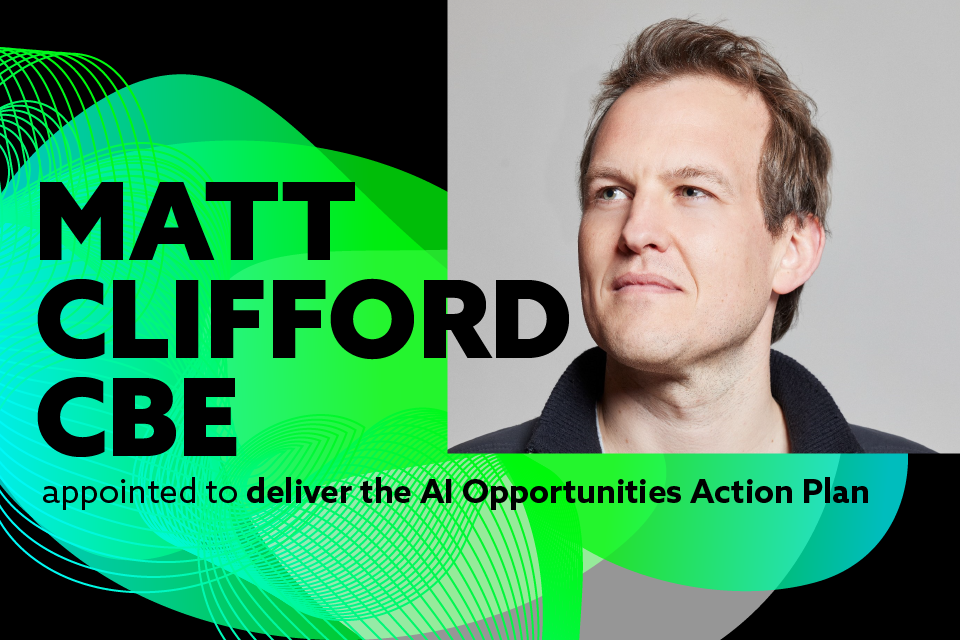- UK Science Secretary commissions Action Plan to identify how Artificial Intelligence (AI) can drive economic growth and deliver better outcomes for people across the country
- tech entrepreneur, Matt Clifford, charged with leading work to explore untapped AI opportunities
- officials to form new “AI Opportunities Unit” at heart of science and tech department to pool expertise, seize the benefits of AI and implement proposals
New UK Science Secretary, Peter Kyle, has put AI at the heart of the government’s agenda to deliver change, sustained economic growth and improved public services.
The Secretary of State has today (26 July), appointed Tech entrepreneur and Chair of Advanced Research And Invention Agency (ARIA), Matt Clifford, to kickstart this work. He will deliver a new AI Opportunities Action Plan to identify ways to accelerate the use of AI to improve people’s lives by making services better and developing new products.
As well as exploring how to build a UK AI sector that can scale and compete on the global stage, the plan will also set out how to boost take up of the technology across all parts of the economy, and consider the necessary infrastructure, talent, and data access required to drive adoption by the public and private sectors.
The Action Plan will play a vital role in driving up productivity and kickstarting economic growth. Estimates from the International Monetary Fund (IMF) show that while the exact economic impact hinges on the wider development and adoption of AI, and realisation could be gradual, the UK could ultimately see productivity gains of up to 1.5 percent annually.
Matt Clifford will deliver a set of recommendations to the Science Secretary in September. Alongside this, Department for Science, Innovation and Technology (DSIT) – acting as the digital centre of government – will also establish an AI Opportunities Unit to bring together the knowledge and expertise to take full advantage of AI and implement recommendations from the Action Plan.
Science Secretary Peter Kyle said:
We’re putting AI at the heart of the government’s agenda to boost growth and improve our public services.
Matt Clifford brings a wealth of experience and shares my ambition when it comes to realising the opportunities of AI, using it to drive growth and improve people’s lives.
Together we will use AI to drive productivity and economic growth in every part of the country so we can make everyone better off.
Chancellor of the Exchequer Rachel Reeves said:
Growing our economy and rebuilding Britain to make everyone better off is our number one mission – and artificial intelligence has the potential to raise productivity and help us do that.
Our AI Opportunities Unit will unlock its full potential to grow a more productive economy, create good jobs across the country and deliver the excellent public services that people deserve whilst saving taxpayers money”.
Matt Clifford said:
AI presents us with so many opportunities to grow the economy and improve people’s lives. The UK is leading the way in many areas, but we can do even better.
I’m excited to start work and develop an ambitious road map to identify the biggest opportunities and support the new government as it makes important choices about where to focus its efforts.
The action plan starts today and will engage key figures across industry and civil society to help in its development.
The Action Plan will also consider key enablers such as the UK’s compute and broader infrastructure requirements by 2030, how this infrastructure is made available for start-ups and scale-ups and how to develop and attract top AI talent in the public and private sector.
The announcement follows the Science Secretary making his first visit since being appointed to the role, where he recently met staff at the Government Digital Service (GDS) and Central Digital and Data Office (CDDO), who have newly become part of the Department for Science, Innovation and Technology.

